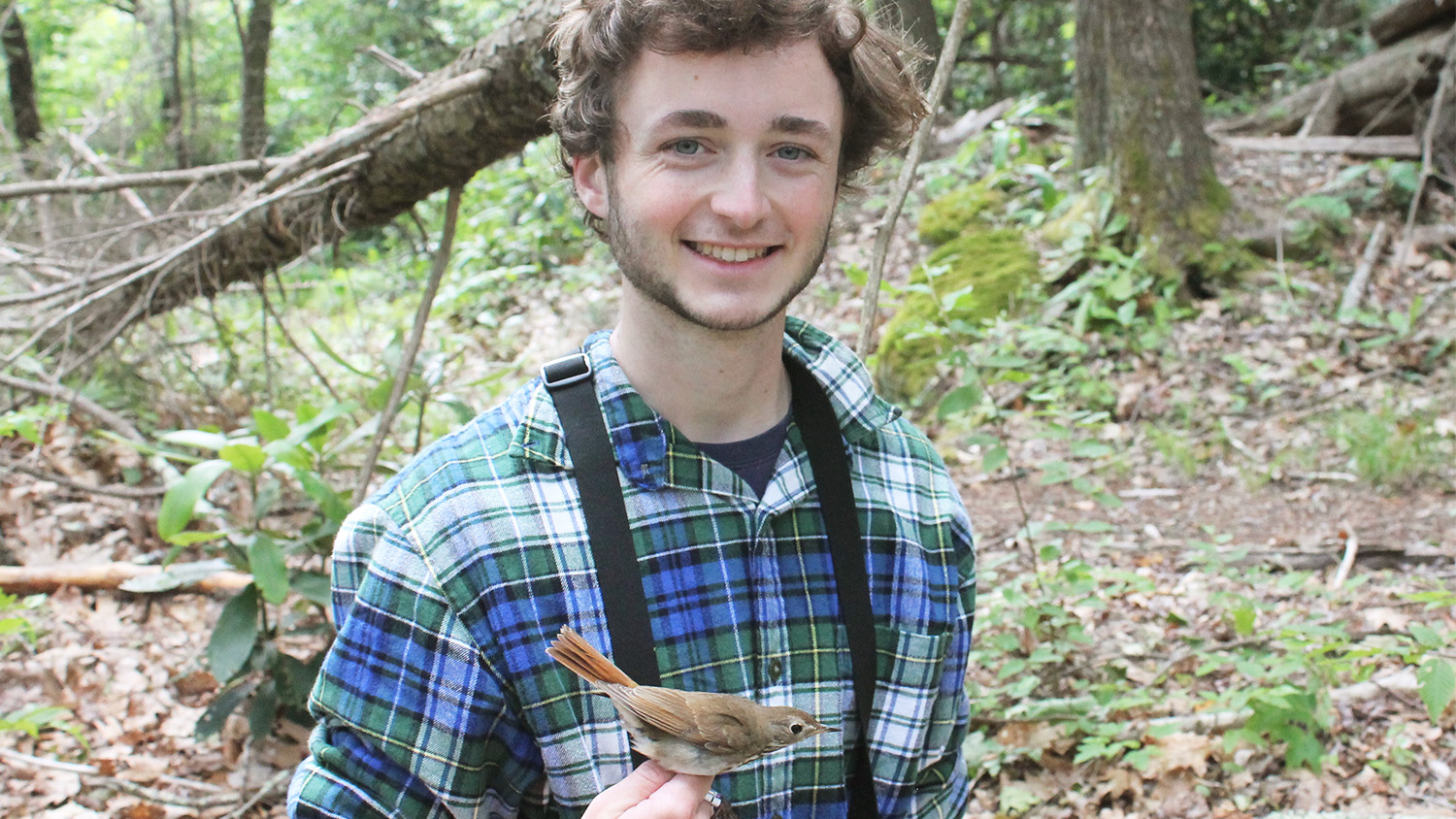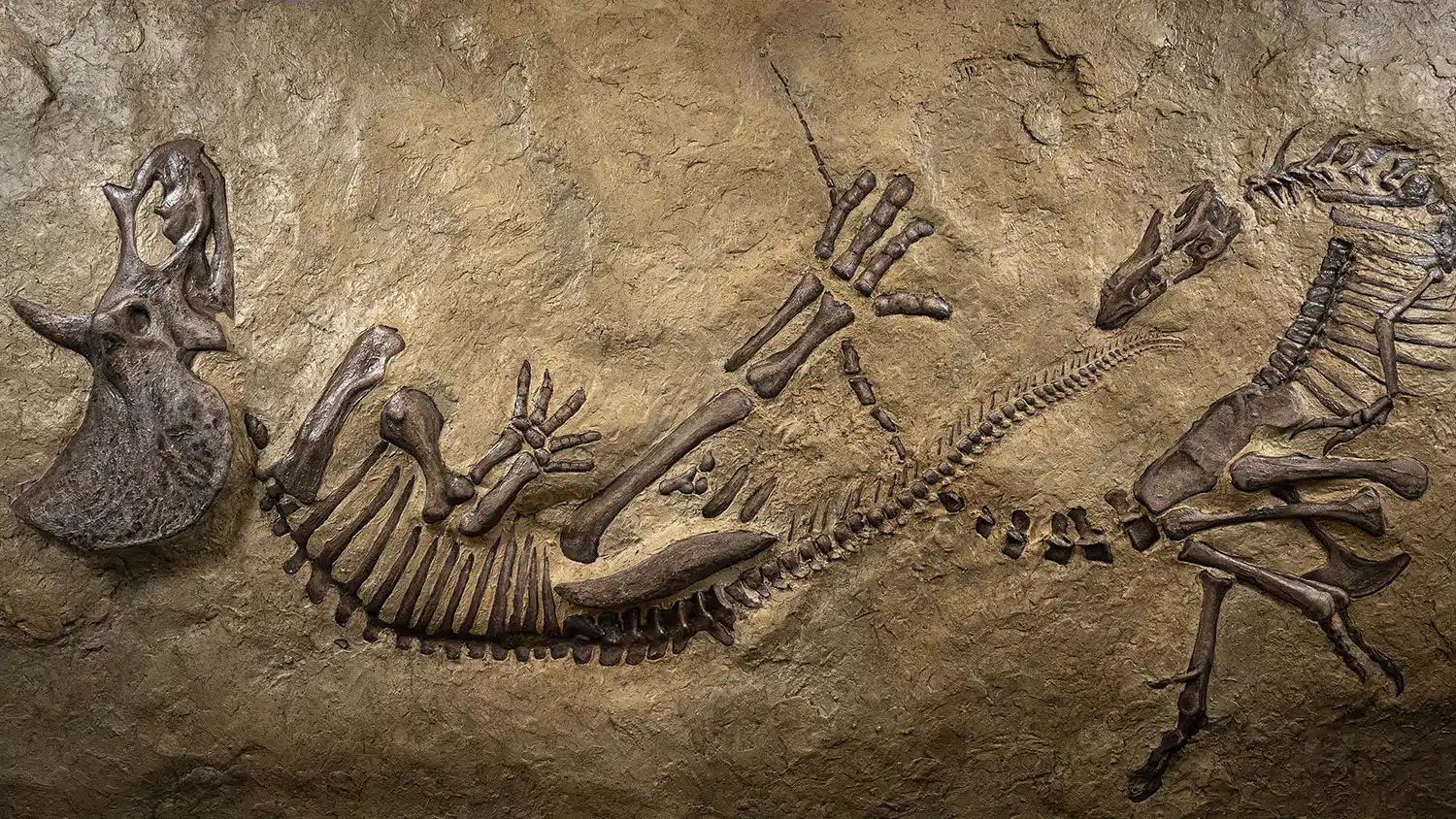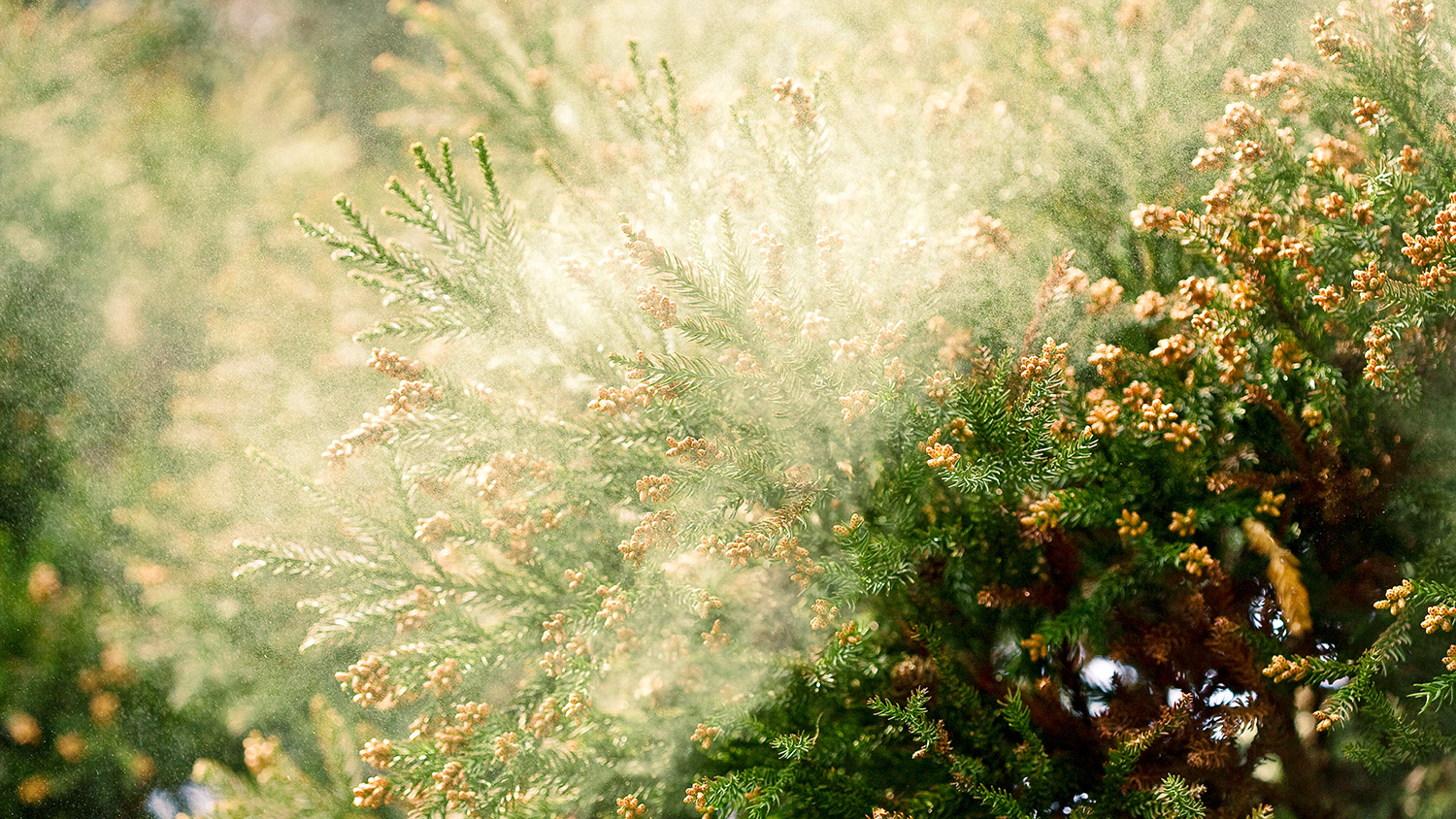Student Spotlight: Edward Landi

Fisheries, Wildlife and Conservation Biology major Edward Landi is a bird guy. In fact, he’s always been a bird guy, so his undergraduate research naturally focused on birds, specifically the home range of Hermit Thrush. When he’s not out in the field with the Museum of Natural Sciences, Landi mentors students living in the EcoVillage at NC State. As a mentor, he helps organize programs and events for residents of the Living and Learning Village focused on sustainability. He’s also a member of Leopold Wildlife Club and competes on their conclave team. Check out Landi’s experience in undergraduate research, supported by the CNR Student Assistance and Enrichment Fund.
Tell us about your hands-on experience.
I am a bird bander with the NC Museum of Natural Sciences on a few long-term research projects in North Carolina. The projects involve capturing and releasing many species of small song birds. After capture, we put small aluminum bands on one leg with a unique nine-digit number, like a social security number, and release them. As a volunteer, I also prepare bird study skins.
I am heavily involved with one project that bands and tracks birds using radio telemetry in the Black Mountain range of North Carolina. For this project with NC Museum of Natural Sciences Research Ornithologist John Gerwin, we focus on one species of song bird called the Hermit Thrush. In my picture, I am holding a Hermit Thrush after capture and banding. Radio telemetry is a method of tracking birds. A small tracker is tied like a backpack on the back of a bird. The tracker emits a radio signal and we use devices that detect the signal so we can follow the direction of the signal to find each thrush.
Volunteering has lead to a passion for bird research because all the projects I volunteered for captivated my attention. The projects were interesting and hands-on. I learned a lot and saw many interesting birds from researching and volunteering. I wanted to learn more out of my own curiosity and that lead me to continue researching birds from the start.
Why was participating in this experience important to you?
Birds are my biggest interest and I want my career to include bird research. It is important that I get experience in field work as much as possible in college. Bird banding requires lots of practice to advance the skill. Radio telemetry is also a very technical skill that is used by many researchers and requires experience.
What did you enjoy most about your experience?
I found handling birds the most enjoyable part about my experience. I enjoyed getting up close and seeing their beautiful plumage. Bird banding is a unique opportunity to hold a bird and get a great glimpse. The field site is beautiful and the scenery of the blue ridge mountains make the whole experience very enjoyable. The mountains are very cool from the rest of the state in the summer and enjoyable to be around.
What did you find most challenging?
I found camping for long periods of time to be a challenge. The weather is very unpredictable and any rain or thunderstorms can make living outdoors very uncomfortable. Thunderstorms can pose a danger when there is a lot of lightning, so field work would have to stop if a thunderstorm happened. The weather on most afternoons had scattered storms and unpredictable patterns.
What did you learn about yourself?
I learned that bird research is the field I want to pursue as a career. Bird banding is a skill I want to advance. Bird banding gives me the opportunity to study birds while being hands-on at the same time. I found out I am comfortable living outdoors for a long time.
What do you enjoy most about being a CNR student?
I enjoy being in a small college where I know my professors very well. I have lots of opportunities to get to know other students in my major. The college is small, but has the resources of a large university.


